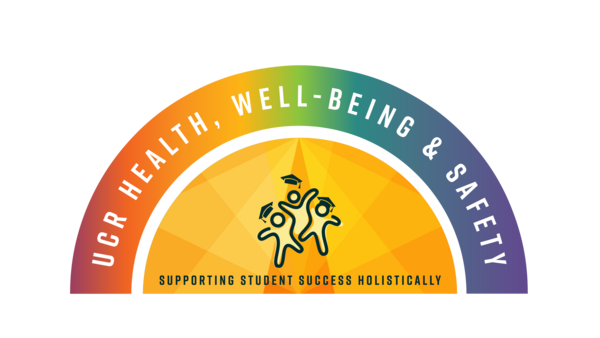CAPS is Open!
To speak to a 24/7 crisis counselor: Call 951-UCR-TALK or 951-827-5531 and select option 1
To speak to our front desk: Call 951-827-5531 and select option 2

Documents, Forms, and FAQs
Documents, Forms, and FAQs
-
Documents, Forms and FAQs
Counseling Center Informed Consent (Services Information Sheet)
Missed/Late Cancelled Appointment Policy and Fee Assessment Appeal Petition- Aug 2022
Stud Instst. for CAPS ROI.fall 2020.pdf (262.81 KB)Release of Information Forms Instructions -
What is counseling/therapy?
Psychological counseling, also called therapy or counseling, is the process of meeting with a mental health professional to receive support working through and managing problematic behaviors, beliefs, feelings, relationship issues, and/or gaining a better understanding of yourself and optimizing your emotional well-being.
-
What is the purpose of therapy?
Psychotherapy, or talk therapy, is a way to help people with a broad variety of mental illnesses and emotional difficulties. The goal is to provide support and assist in management of troubling symptoms so a person can function better and can increase well-being and healing.
-
Who is eligible to use Counseling and Psychological Services (CAPS)?
All Registered Students (graduate and undergraduate) are eligible for FREE services at CAPS, no insurance required.
-
Aren’t most people who seek counseling sick, crazy or disturbed?
Absolutely not! Everyone needs support and/or assistance at one time or another. Students seek counseling for a wide variety of reasons, from more acute crisis situations, exploring personal growth/identity, to relationship issues, or simply wanting support to cope with changes in their lives. CAPS diverse clinicians provide a safe, supportive and non-judgmental environment to provide support. Whatever the case, seeking support counseling is a sign of personal strength.
-
Do I have to pay a fee for Counseling and Psychological Services?
NO! CAPS services are FREE to ALL registered students; no payment or insurance required to receive services.
-
What are my therapist/counselor’s qualifications?
CAPS clinicians are a highly trained and diverse group of multidisciplinary mental health professionals trained as Licensed Psychologists, Marriage and Family Therapists and Clinical Social Workers. While considered generalists, our licensed clinicians utilize a wide variety of therapeutic techniques, orientations and treatment modalities.
CAPS also employs Psychology intern clinicians from across the country in their final year of their clinical doctorate training, who are supervised by licensed Psychologists. For more information on our clinicians see our bio page
-
How do I get started seeing a counselor?
Call (951) 827-5531, Option 2 to speak to a CAPS receptionist and ask to schedule an appointment, or drop by the office located in Student Health & Counseling Center (SHCC) next to Lot 21. We offer some same day appointments and crisis support or may start by scheduling an intake assessment.
-
Are my counseling sessions confidential?
Yes, ALL CAPS sessions are confidential and legally protected information. All information gathered during counseling is confidential and can be released only with the student’s written consent, within the limits of the law. Confidentiality is limited in certain situations that may dictate we take steps to ensure your safety and the safety of others. Examples to exceptions of confidentiality include situations involving danger to self or others and child abuse, elder abuse, or dependent adult abuse Your counselor can discuss these issues and other concerns with you in more detail. For more information on getting protecting your confidentiality visit https://counseling.ucr.edu/protecting-your-confidentiality.
-
What is an intake appointment?
Typically, the first visit to Counseling and Psychological Services is an intake appointment. At an intake appointment, a counselor will evaluate that the challenges you are having and work with you to determine a course of treatment. Following the intake assessment, you would begin treatment at CAPS or elsewhere or determine that you may need another support service. CAPS works within a short-term therapy model, and many concerns can have full or partial relief within a relatively short time. If long-term treatment is necessary, you can be provided with referrals for therapists in the community. For more information on getting started at CAPS, visit https://counseling.ucr.edu/beginning-treatment-make-appointment.
-
What can CAPS do to help me?
CAPS provides a variety of FREE services for ALL registered students that include:
- Individual counseling and psychotherapy, group therapy, and couples counseling
- Referrals for Psychiatric evaluation and treatment
- Crisis consultation and emergency intervention
- Psychoeducational programs and workshops
- An APA Accredited Training Program for mental health professionals at the doctoral level
- Campus mental health and wellness promotion
-
What will happen at the initial intake appointment?
During Your Intake Appointment, you will meet with a clinician who will conduct a clinical assessment to help determine how we can best serve you. You will have the opportunity to discuss your personal concerns that prompted your appointment. The clinician will use that information, your questionnaire and the background and history you provide to help make recommendations for services offered at CAPS or other recommendations that may be helpful. For more information about intake appointments and beginning treatment visit
https://counseling.ucr.edu/beginning-treatment-make-appointment -
Who will my counselor be?
CAPS clinicians are a highly trained and diverse group of multidisciplinary mental health professionals trained as Licensed Psychologists, Marriage and Family Therapists and Clinical Social Workers. While considered generalists, our licensed clinicians utilize a wide variety of therapeutic orientations and treatment modalities.
CAPS also employs Psychology intern clinicians from across the country in their final year of their clinical doctorate training, who are supervised by our licensed Psychologists. For more information visit our bios page: https://counseling.ucr.edu/our-staff
-
Can I see my Counselor as many times as I want?
Not exactly. Our services are time limited, also known as short term. Ongoing, intensive care (e.g., weekly sessions) is typically not available at CAPS, but your therapist will work collaboratively with you to help you determine how to best manage your sessions and care to get the most out of your sessions. We have a variety of services that can provide support for ongoing treatment that might be needed in addition to what we offer. For more information on how we determine treatment duration visit: https://counseling.ucr.edu/short-term-counseling-and-psychotherapy
-
How do I cancel Appointments?
Easy, call CAPS at 951-827-5531, Option 2 to speak to a counseling center receptionist who will help you cancel or reschedule your appointment during business hours. You may leave a confidential message when the office is closed (be sure to leave your full name, student ID and a number to reach you at.
You can also cancel your appointment through the student portal: https://chconline.ucr.edu
Please note: appointments cancelled less than 24 hours will be charged a late cancellation fee. Be sure to review the CAPS missed/late cancelled appointment policy and appeal form for more information about missed or late cancel fees and appeals..
-
What are the missed/no show appointment fees?
Due to the high demand and the limited availability of appointments, CAPS clients who miss or do not show up for a scheduled appointment or cancel with less than 24-hours notice, will be charged $20 to their student account. Check out CAPS missed/late cancelled appointment policy and appeal for more information about missed or late cancel fees and appeals.
-
What happens if I am late for an appointment?
That depends. Appointments are in high demand and scheduled to allow for adequate time to support your treatment needs. Please make every effort to arrive on time for your scheduled appointment.
- If you are running a few minutes late, call (951) 827-5531 to let us know you are on the way.
- If you are 15 minutes or later for your appointment, we will need to cancel/reschedule your appointment and will offer a brief consultation if needed.
Check out CAPS missed/late cancelled appointment policy and appeal for more information about missed or late cancel fees and appeals.
-
Can I use my insurance at CAPS?
No. You do not need to use insurance at CAPS because services are FREE to ALL Registered Students. CAPS does not take or bill any insurance.
-
Do you have counselors that are specialized for particular identity communities?
CAPS clinicians are considered generalists who also demonstrate respect for diversity and multicultural considerations and possess knowledge, skill, and ability to work with a highly diverse client population. All CAPS clinicians have an understanding and appreciation for individual differences and how diversity, equity and inclusion are critical issues that impact the daily lives of UCR students. Many CAPS clinicians have additional experience, affinity and/or specialized training to work with specific communities.
-
Can I switch therapists?
You can! But… If you have questions about your treatment or concerns about the goodness of fit with your therapist, you are encouraged to talk with them first about your experience before exploring alternative treatment options. Therapists tend to be very receptive to feedback. They are invested in helping you and want to know what is and isn’t working. If you feel you cannot resolve your concerns by talking with your therapist, the next step would be calling the front desk and asking to speak with the Clinical Coordinator who can discuss your concern further and help reassign your case if appropriate.
-
How many counseling/therapy sessions do we get?
That depends. CAPS utilizes a short-term therapy model which focuses on helping you clarify your concerns and work towards the resolution of difficulties. You and your clinician will discuss treatment goals, including frequency and duration of treatment. At times, the optimal treatment plan may be longer term, or require referrals for more intensive or specialty care for ongoing treatment (e.g., weekly sessions) by an off-campus treatment provider. In any case CAPS will support through transitions to different treatment providers. For more information visit: https://counseling.ucr.edu/short-term-counseling-and-psychotherapy
-
What if I need more sessions?
Talk with your counselor/therapist about your needs/concerns. Options may include additional sessions at CAPS to support stabilization, referrals off campus for specialty or longer-term treatment, or bridge support while making a transition to care out of CAPS. For more information visit: https://counseling.ucr.edu/short-term-counseling-and-psychotherapy
-
Can I access CAPS services even if I “opted out” of the UC SHIP insurance?
Absolutely yes. CAPS services are FREE to ALL registered students, regardless of insurance.
-
What therapy/counseling groups are currently running?
New CAPS groups start each quarter. For the most recent listing of CAPS groups, visit our CAPS groups link: https://counseling.ucr.edu/group-therapy
-
What is group therapy/counseling?
Therapy groups allow students to work with other students who share common concerns. Group members talk about what is troubling them and give feedback and support in a safe, supportive environment. Interactions offer group members an opportunity to learn more about the way they interact with others and to try out new or different communication skills. To learn more about groups visit: https://counseling.ucr.edu/group-therapy. For the most recent listing of CAPS groups, visit our CAPS groups page!
-
How do I sign up for group?
To sign up for a CAPS Group, call our office at (951) 827-5531, option 2 during business hours and let the admin assistant know you want to sign up! If you are an existing client, let your provider know you are interested. New CAPS groups start each quarter. For the most recent listing of CAPS groups, visit our CAPS groups page!
-
What should I do if I had a negative experience at CAPS?
Please tell us if you have any negative experiences or any suggestions for us to improve your experience. You can share information by sending an email to counseling@ucr.edu; or you can call our office at 951-827-5531, option 2 to speak to the CAPS receptionist who will connect you to one of the CAPS leadership team members; or you can ask to speak to the CAPS director, or email the director at elizabeth.mondragon@ucr.edu.
For anonymous feedback you can also complete a CAPS survey at: https://ucriverside.az1.qualtrics.com/jfe/form/SV_0HcVS2njd4zif4O
-
Does CAPS provide emotional support animal letters?
No. As of 2018 CAPS does not provide ESA letters, in alignment with UC, state best practices.
-
Will CAPS tell my parents / coach that I have reached out?
CAPS records, including appointment details, are considered confidential and are protected by law. We would not be able to share information or even confirm or deny you are a client at CAPS. However, there are certain limited situations that information would be shared to protect your safety or the safety of others. For more information, please ask your therapist and get more information about confidentiality and its limits at: https://counseling.ucr.edu/protecting-your-confidentiality
-
What if someone sees me at CAPS?
It is possible that someone may see you in the CAPS lobby area. While this may be concerning, it is important to remember that the other person is also seeking support at CAPS. Seeking support, while difficult for many is also an indication of strength and self-awareness. In addition, it is entirely up to you what you share about your visit to CAPS, as we will not confirm or deny that you are even a client in our center.
For more information on getting protecting your confidentiality visit: https://counseling.ucr.edu/protecting-your-confidentiality
-
Does engaging in therapy/counseling go on my permanent record?
No. ALL CAPS records, including appointment details, are considered confidential and are separate from your educational records and protected by law. For more information about confidentiality and its limits visit: https://counseling.ucr.edu/protecting-your-confidentiality
-
Will I have to pay for services at CAPS / how much will it cost me?
No, CAPS services are FREE to ALL registered students, regardless of insurance. The only costs that can be incurred would be for late cancelled or missed appointments. Check out CAPS missed/late cancelled appointment policy and appeal for more information about missed or late cancel fees and appeals.
-
What can I expect from counseling or my clinician?
CAPS offers comprehensive supportive and clinical care tailored to your needs. You can expect to meet with a trained professional who is interested in listening to you and understanding your concerns so that they may assist you. Your clinician will be familiar with the unique stressors facing UCR students and work collaboratively with you to reduce barriers to achieving academic success and emotional wellbeing. Your clinician will maintain strict confidentiality as required by law. For additional details on confidentiality and its limits, review: https://counseling.ucr.edu/protecting-your-confidentiality
-
What is the best way to support another student in distress/reassure them?
The best thing you can do is simply be available to acknowledge seeing a student in distress and be a non-judgmental, caring person. It helps if you actively listen to their concerns and demonstrate you hear them. Share your concerns directly with examples of specific behaviors [e.g., “I’ve noticed you don’t come to class anymore, you never miss class, everything ok?”].
Understand that you cannot be responsible for making things better or force them to accept help. But in addition to listening supportively you can suggest/make them aware of resources like CAPS or Case Management https://casemanagement.ucr.edu/.- Where can I find resources for someone in distress or struggling with a mental health issue?
Two valuable resources on campus are:
- Counseling & Psychological Services resources page: https://counseling.ucr.edu/resources-support-specialty-care-self-help-and-making-connections
- Case Management: https://casemanagement.ucr.edu/
You or the student can also call CAPS and choose to speak to a crisis counselor right away if there are concerns that require immediate support by phone 24/7 (951) 827-5531. They can also call CAPS and schedule a same day “Virtual Walk-in” visit with a counselor. As well, you can call CAPS and schedule a same day consult to get support on how best to support the student of concern. Likewise, you can let a Case Manager know and they will reach out to the student and check in on them.



